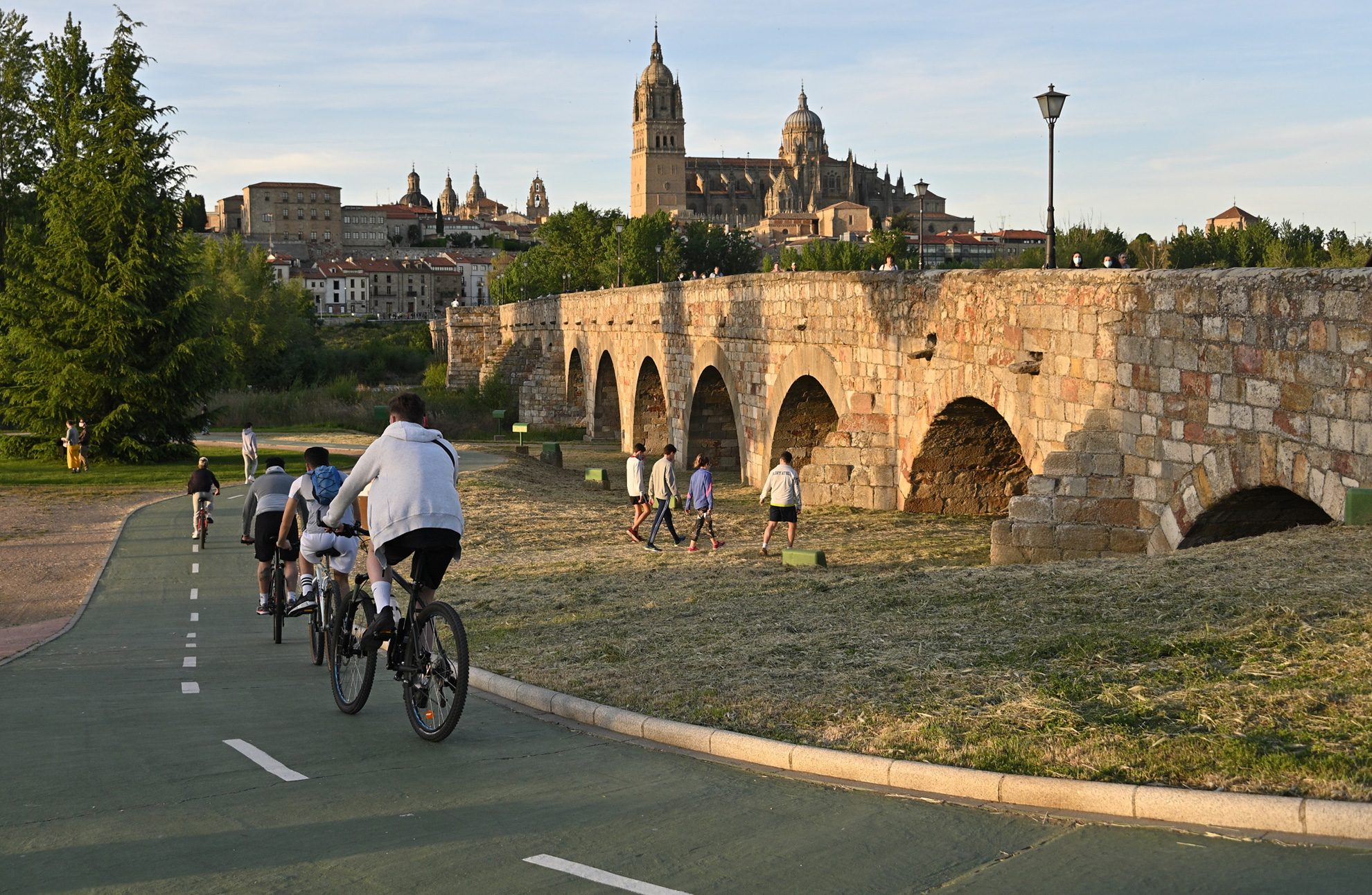The UPV/EHU-University of the Basque Country is participating in an EU pilot project to combat climate change
The UNESCO Chair on Sustainable Development and Environmental Education is collaborating in turning the Vía de la Plata (Silver Route) in Salamanca into a green corridor
- News
First publication date: 27/07/2021

LIFE Vía de la Plata is a pilot project selected by the European Commission in its annual call in this year’s climate change programme that aims to create a new green infrastructure corridor along the 6.9 kilometres of the route of this ancient Roman road in the municipality of Salamanca. With investment in excess of 2.8 million euros, with just over 1.4 million euros being subsidised by Europe, the initiative encompasses a range of key elements, the combination of which is being pioneered for the first time in an urban area earmarked for sustainable development: adaptation to climate change, implementation of green infrastructure in a World Heritage city, revival and improvement of the services provided by this infrastructure, machine learning and citizen involvement and participation.
The project, which will run until the end of 2023, will be carrying out 41 standard actions in different aspects related to flora, fauna, water, citizenship, culture and heritage. Nature-based solutions (NbS) will be applied to revive up to 49 different ecosystem services ranging from aspects such as food supply, climate regulation or noise reduction to air quality regulation, leisure and environmental education. The project also provides for the monitoring of all these aspects with the installation of innovative measuring stations; they will make it possible to obtain a series of parameters that will subsequently be processed through BIG DATA programmes to be able to better plan and anticipate possible scenarios that will help mitigate climate change in the city. LIFE Vía de la Plata also has an ambitious know-how transfer plan so that its results can be used by other Spanish and European cities.
With the support of the Basque Government and the Charter Provincial Council of Bizkaia, the UNESCO Chair has been leading the research project Assessment of Ecosystem Services in the Basque Country for over ten years. The main aim of the project is to identify which areas of the region offer significant capacity in terms of providing ecosystem services, and to incorporate this information into decision-making, which will help to prevent or minimise the impacts of people on ecosystems and the services they provide.



